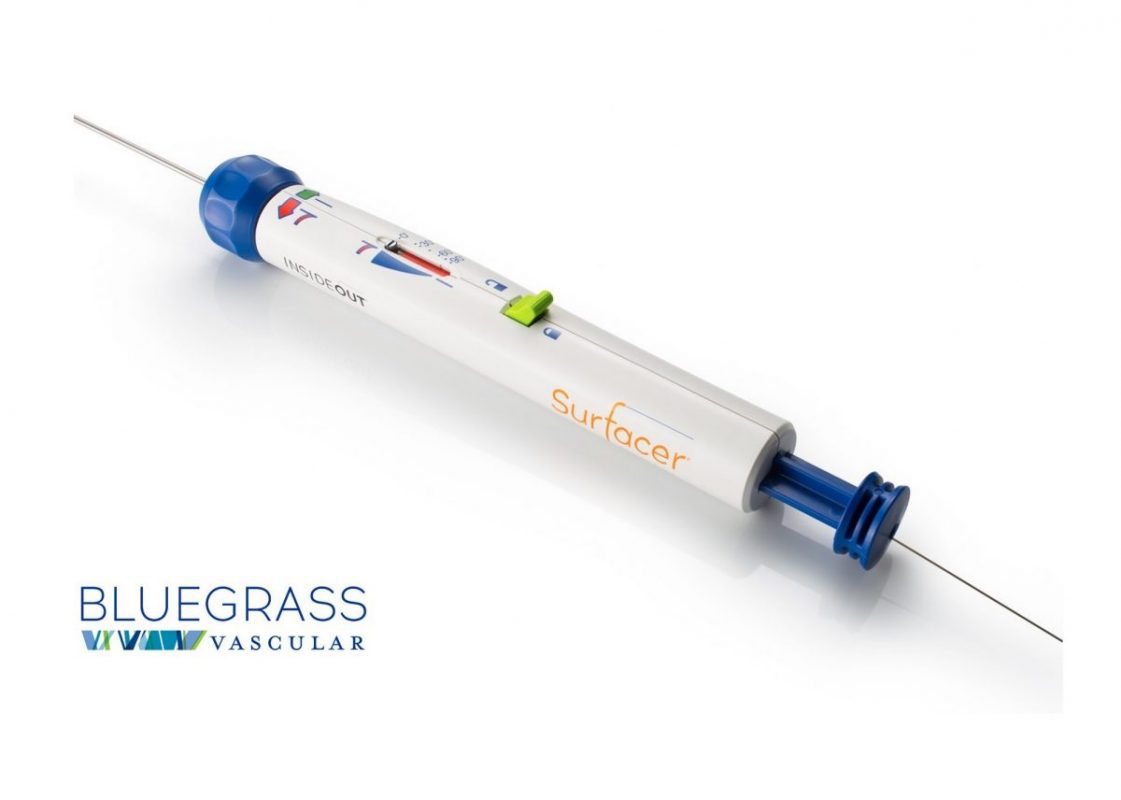Bluegrass Vascular Technologies (Bluegrass Vascular), a private medical technology company focused on innovating lifesaving devices and methods for vascular access procedures, announced today that the Centers for Medicare & Medicaid Services (CMS) has finalized a new Healthcare Common Procedure Coding System (HCPCS) code and New Technology Ambulatory Payment Classification (APC) assignment for use of the Surfacer® Inside-Out® Access Catheter System (Surfacer System) procedure.

The new code is C9780, Insertion of central venous catheter through central venous occlusion via inferior and superior approaches (e.g., inside-out technique), including imaging guidance. It is assigned to New Technology APC 1534, with a national average payment rate of $8,250.50. As a result of this decision, hospitals and ambulatory surgery centers (ASCs) will be able to utilize HCPCS code C9780 to report the Inside-Out procedure when performed with the Surfacer System beginning on October 1, 2021.
The Surfacer System employs a novel Inside-Out approach and is the first FDA cleared medical device to facilitate upper body central venous access in patients with venous obstructions or other conditions that preclude access by conventional methods.
“The CMS decision to assign a New Technology APC for the Surfacer System is a major milestone and will ensure that our innovative technology will be reimbursed for Medicare beneficiaries. This is a significant development, given the prevalence of thoracic central venous obstruction in patients dialyzing via a central venous catheter,” stated Gabriele Niederauer, Ph.D., CEO and President of Bluegrass Vascular. “This decision is a testament to the positive clinical evidence and cost data that support the use of the Surfacer System as a critical, lifesaving technology.”
Thoracic central venous obstruction occurs in roughly 40% of patients where hemodialysis is performed via a central venous catheter.1 While permanent arteriovenous fistulas are the preferred form of vascular access for hemodialysis patients, central venous catheters continue to serve as an important bridge to securing long-term access for life-saving hemodialysis treatment. The current approach for most patients with central venous obstructions is to use an alternative vein, which reduces the ability to place and mature a functioning fistula, resulting in increased catheter days and costs.
According to CMS, more than 62.4 million Americans are enrolled in the Medicare program.2 Approximately 80% of patients on hemodialysis are covered by Medicare fee-for-service as primary payer or by a Medicare Advantage managed care plan.3 Patients who live with kidney failure represent 1% of the total U.S. Medicare population yet account for 7% of the Medicare costs.4
The use of the Surfacer device also avoids left-side catheter placement, better enabling the maturation of permanent arteriovenous access options in the left arm and minimizing unnecessary access-related procedures and complications. The National Kidney Foundation’s current Kidney Disease Outcomes Quality Initiative (KDOQI) Clinical Practice Guidelines for Vascular Access recommend that the ideal access site for hemodialysis catheters is the right internal jugular vein. This preferred right-sided access path is supported by the Surfacer System’s novel Don’t Go Left™ approach.
The Surfacer System received FDA De Novo clearance in the US in February and is CE marked in Europe. The device is available in North America, Europe and other territories.